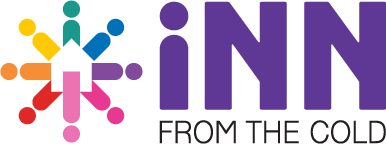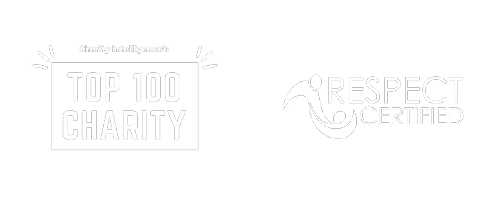Family Homelessness INNformation Series: Economics
Using case management to achieve economic stability
By: Brett Linderman
Hi, my name is Brett Linderman and I am the Assessment and Triage Team Lead at Inn from the Cold (the Inn)! I’ve been working with the Inn since April 2014, and have worked in a variety of roles including Family Advocate and Shelter Support Worker. My team and I work with our clients every day and accompany them along this leg of their journey into housing and stability. The Assessment and Triage team can be thought of as short-term caseworkers.
What are some of the economic challenges seen with families in crisis?
Some barriers faced by families are personal or straightforward, like limited financial literacy or the lack of a bank account. Other barriers are much more systemic, such as difficulty or cost associated with further education and training, entering the private rental market, or simply navigating the maze of everyday systems. A task that looks like one or two simple steps on paper may require much more work than it would appear to at first glance. Obtaining a bank account would be a good example of this, especially if a client first needs to secure proper government identification. We also see the same large systemic challenges affecting all of our guests: affordable transport, affordable childcare, and affordable housing.
How often do these economic challenges bring families to the Inn?
Very often. After families arrive and settle in, they’re paired with a Family Advocate and participate in an assessment and the development of a case plan. During their assessment one of the first questions we ask our guests is why they’re entering our program. In our experience the reasons for entry into our emergency shelter program tends to loop back to a lack of adequate housing, or a related catalyst that makes their previous housing location inadequate. Common issues include overcrowding or a lack of personal safety. Families entering IFTC due to a formal eviction and non-payment of rent aren’t often encountered.
How does the Inn help families overcome this?
This really is the million dollar question worked on by the team, day in and day out. We offer traditional supports like material referrals or the arrangement of specific supports via another specialized agency or institution. We also support our guests in accessing the various applicable benefits provided by the provincial and federal governments, like the Canada Child Benefit. This is most often accomplished by arranging access to free tax clinics and restoring contested benefits by working with the Canada Revenue Agency. In addition, we also employ “softer” avenues of support, like broaching the subject of household finances and assisting clients in making a concrete plan for their available funds. Finally, we can offer pro-active supports, like assisting eligible clients in opening RESPs for their children.
What education, supports and tools does the Inn provide families?
The team’s input range from tangible resources and referrals, to utilizing teachable moments. Clients interested in improving their financial literacy (budgeting, credit, prioritization of purchases), can be referred to various education agencies or these topics can be addressed in-house by our team members.
In terms of material support, we regularly provide transit tickets, clothing, household goods, and other supplies to our families while in shelter. When a family leaves the Inn for housing we complete a collection of referrals called a Move-Out Package. This allows the family to access various resources around the city for items like food, furniture, and household goods. We also provide a package containing things like bedding and cooking utensils, so families don’t need to worry about being able to function in an empty home. These supports allow our clients focus their financials primarily on remaining housed in their new home.
Some other supports we can offer are geared to the very long term. For example, we assist families in opening RESPs for their children. As higher education correlates with higher income, the hope is that though the parents of our current child-age guests are homeless, their grandchildren will not be, by investing in their children today. This is a relatively new support, and one we are excited to offer.
What income support opportunities are available for families experiencing homelessness?
There are three primary methods of exiting shelter for housing. Accessing Alberta Works for their Income Support program is one of the typical ways families exit homelessness. This is an application made at a local office or via an Alberta Works outreach worker. Families undergo a thorough examination of their financial situation to qualify. If successful, Alberta Works provides the household access to a fixed level of income for a fixed period of time. For example, a household composed of a single parent and one child which falls under the “Expected to Work” designation living on their own in market housing can expect to work with a fixed income of $933, per the 2016 Benefits Summary.
Another routes a family can take is the completion and acceptance of a housing application, or through another interview assessment (called a NSQ) that is reviewed before a housing committee. Both of these methods tend to offer strong, long-term, and stable housing opportunities, but suffer from very full waitlists, and access is never guaranteed. Demand for entry absolutely outweighs capacity.
What is a success story that has stuck with you?
For me, one of the most memorable families was one which had come to the Inn simply because of bad luck. This family had been reliant on the father’s salary. His job was very unstable and he had to be away for long periods of time. During recent financial downturn this family was one of those affected. This family, used to making ends meet, had to attempt to live off of their teenage son’s AISH payments. Ultimately, this family successfully exited the Inn through a combination of the application for additional benefits (another household member qualified for AISH, but had never applied), assisting the father with re-entering the job market, empowering the teenage son to enter the labor market, and sustainable budgeting practices. This family has never returned to the Inn and is doing quite well!
What are some resources available for individuals interested in learning more?
An incredible agency in Calgary that supports our guests with financial matters is Momentum. They focus on financial literacy, money management, and career building for low to mid income Calgarians. If you want information relating to money management practices, RESPs, or how to manage a household or launch a career, they’re an excellent place to start.
If you’d like to know more about the housing process, speaking to a representative at the Calgary Housing Company, or even visiting SCORCE at City Hall will help shed some light on the numerous processes and opportunities that are available to our guests and fellow Calgarians.
If you’re really curious, why not take a look up close and volunteer? There’s always lots to learn, and always more to do. If you have any questions, feel free to reach me at my work email: brett@innfromthecold.org
















